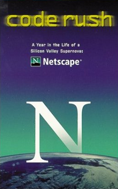I have a confession to make: IANAP (I am not a programmer) so when my technology breaks I struggle to fix it with a mixture of duct tape and google! Well ok, so no tape. Despite my lack of competence I have made several forrays into the wonderful world of linux, lulled by a mix of political correctness, can-do spirit and a philosophy I believe in. But, none of this helps when technology fails. No amount of feel-good philosophy can help me read my email which is the real reason for me having technology.
So last week when I was practicing with my new toy, a Samsung Notebook with Ubuntu, I came upon a wall of desperation when the menus disappeared. When turned on all I got was a background. Since I had not made any changes to the default it was still the brown boring background – and nothing else.
So I guessed, pushed and prodded the computer but it stubbornly refused to divulge any clues as to how it could be fixed. But never fear, the internet is here! The wonderful post:How to Reset Ubuntu/Gnome Settings to Defaults without Re-installing fixed everything.
Open terminal. Type
mv .config .old_config
hit return, then type
rm -rf .gnome .gnome2 .gconf .gconfd .metacity
restart the computer and it was as good as new. All the menus are back again and I am a happy ubuntu person ready to go out and rebreak my computer – frustration is, after all, a learning experience.
